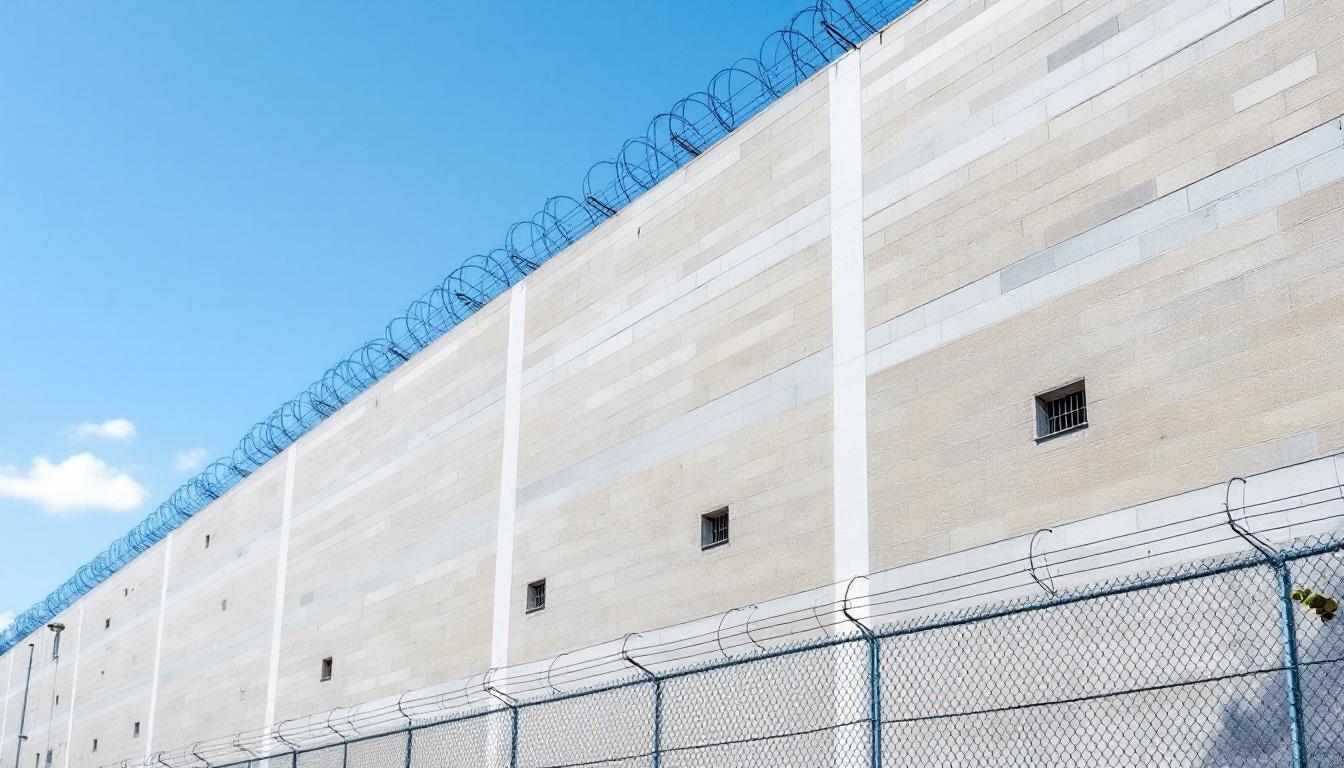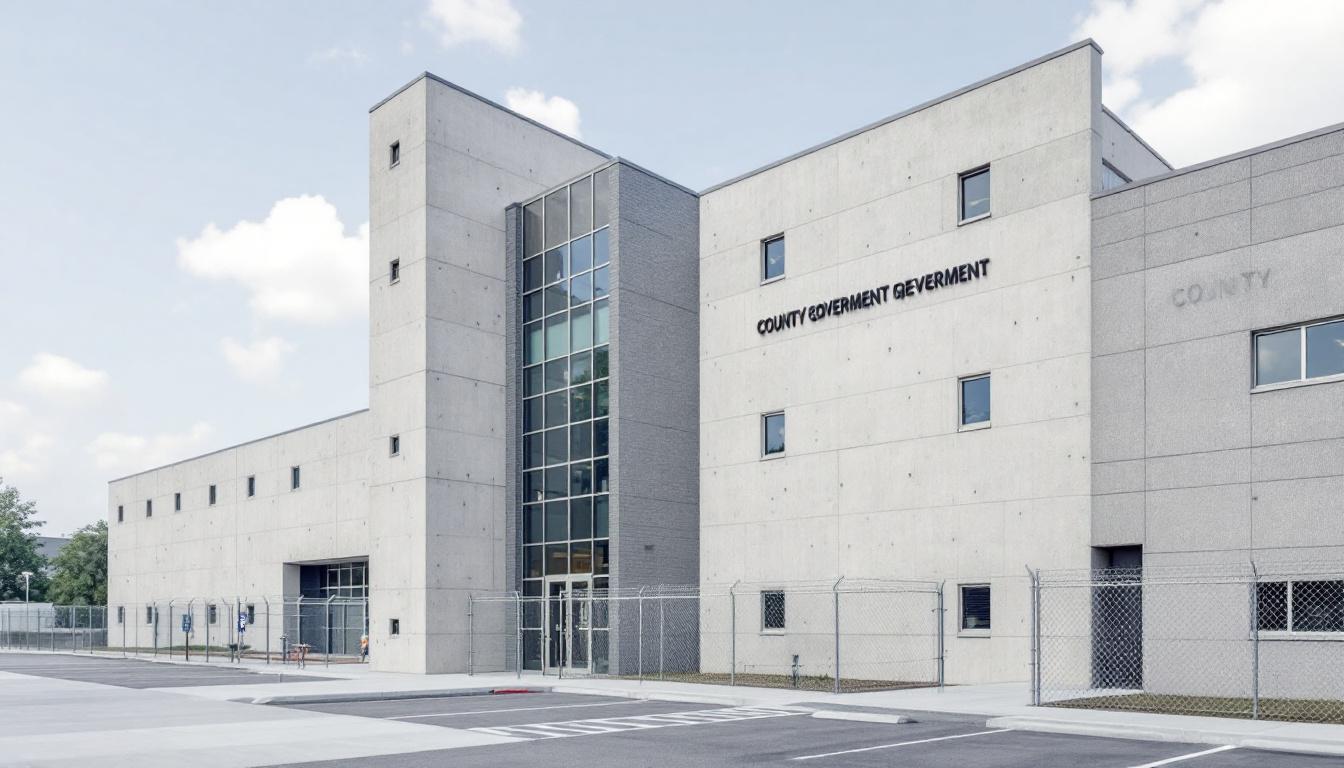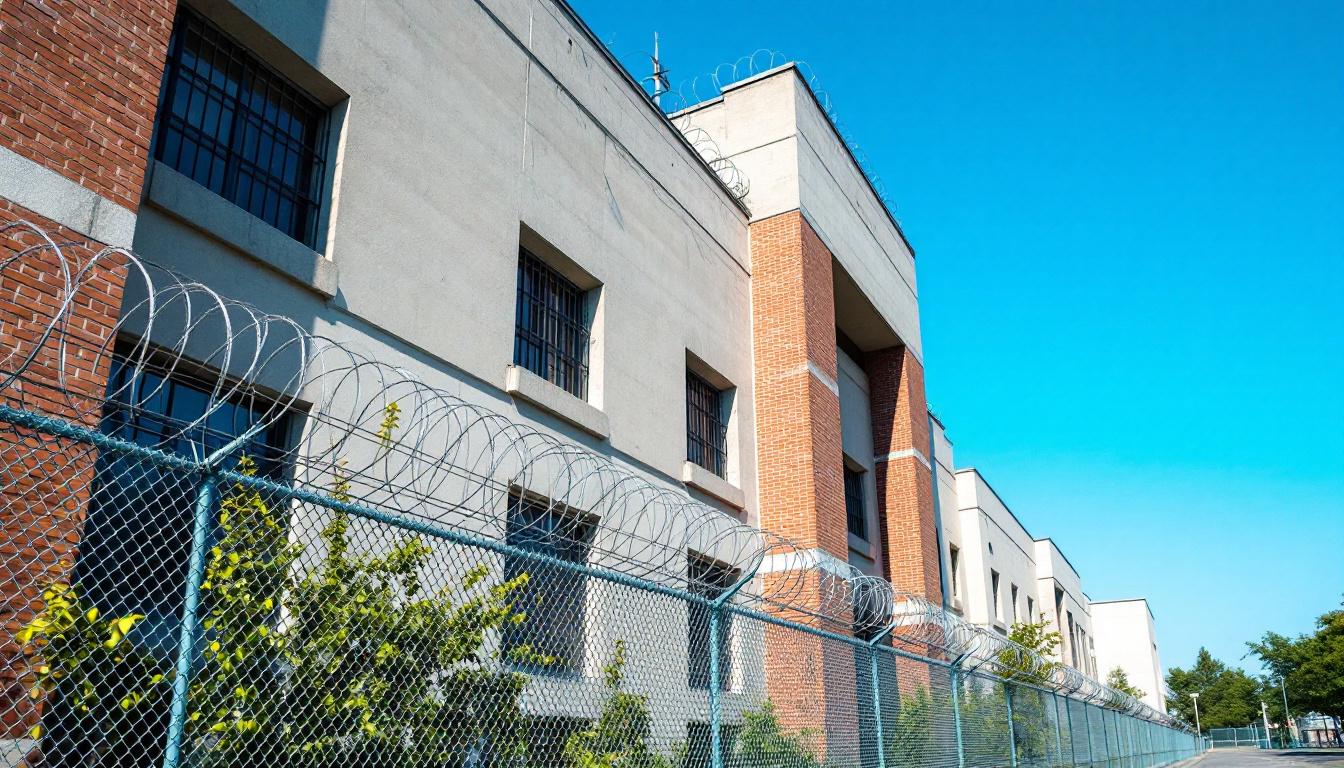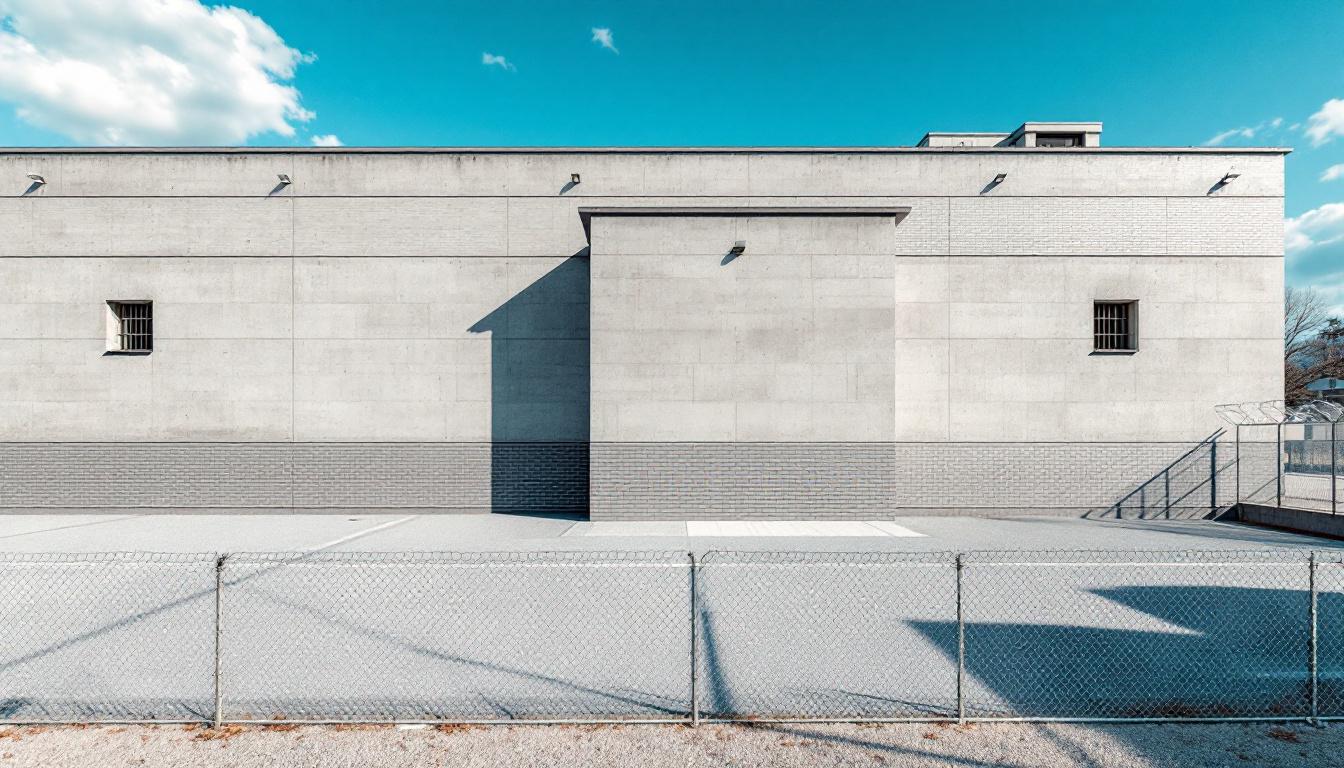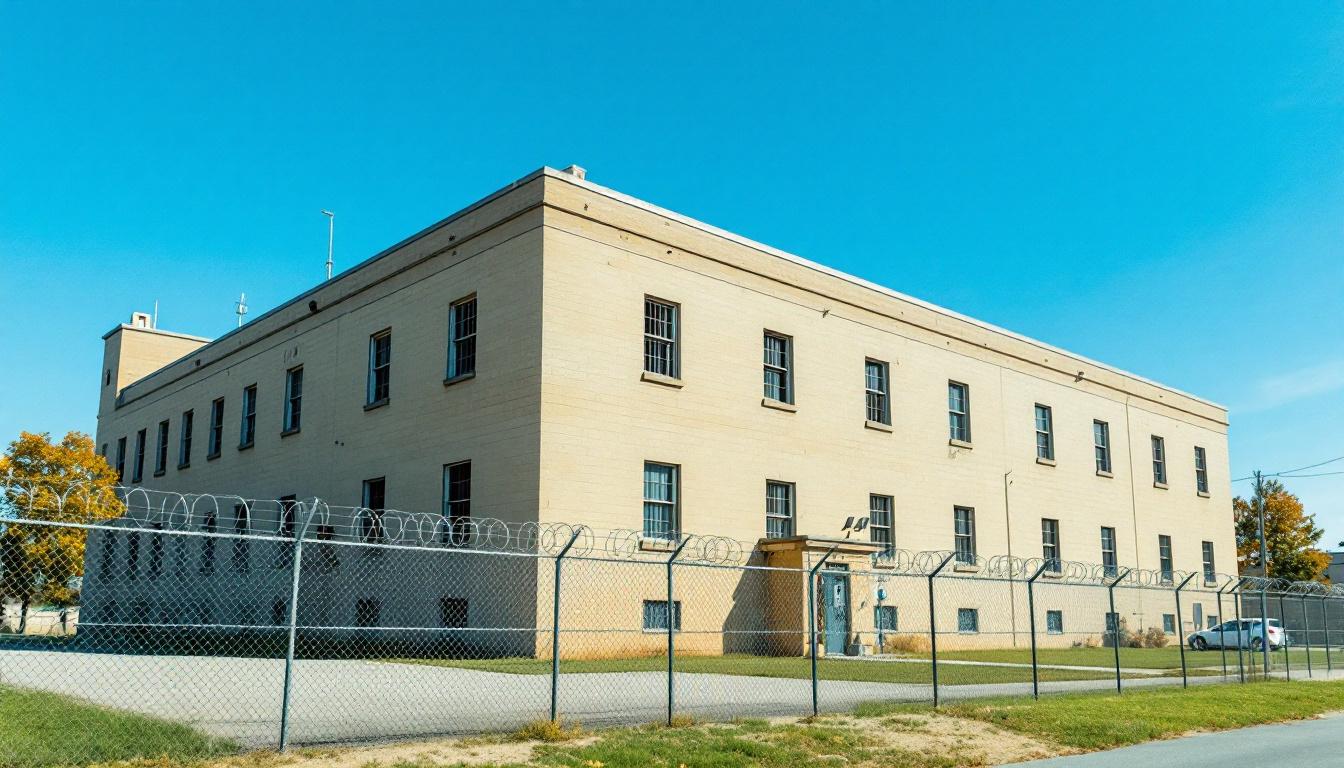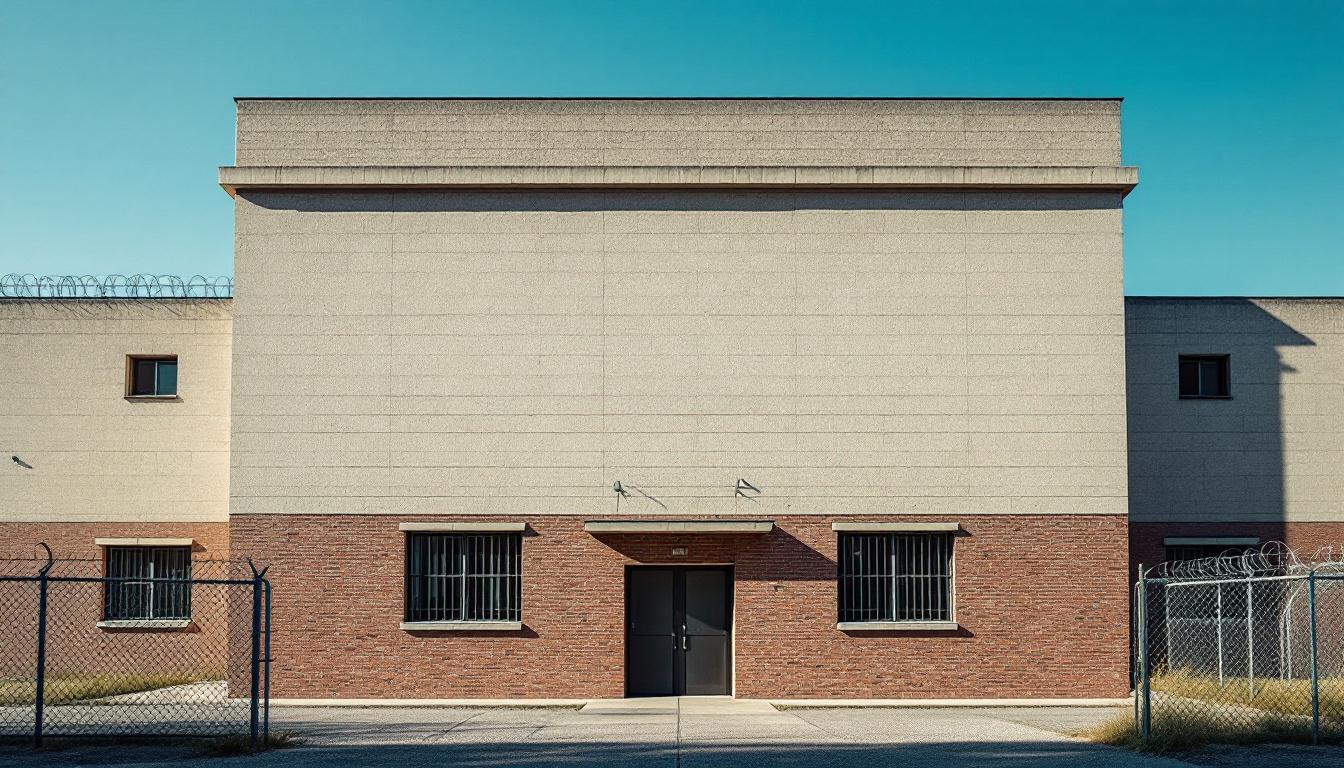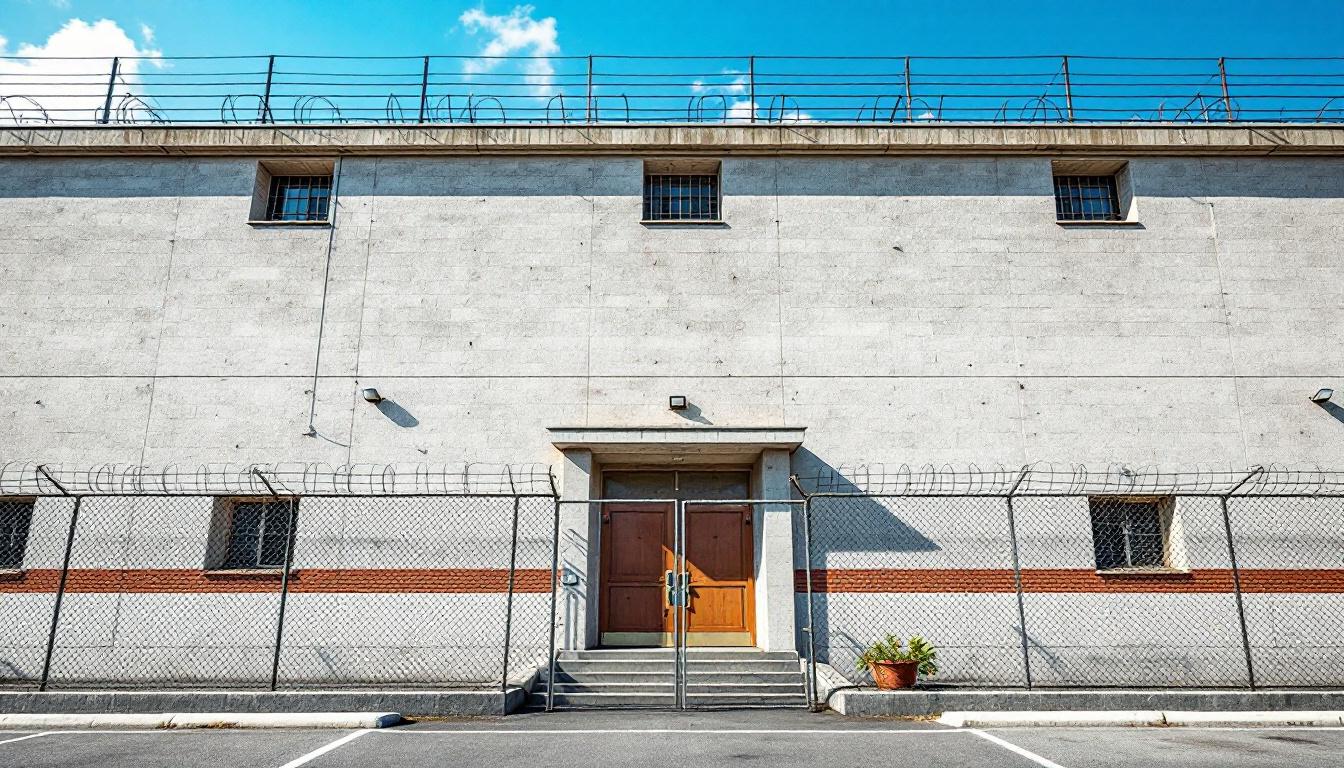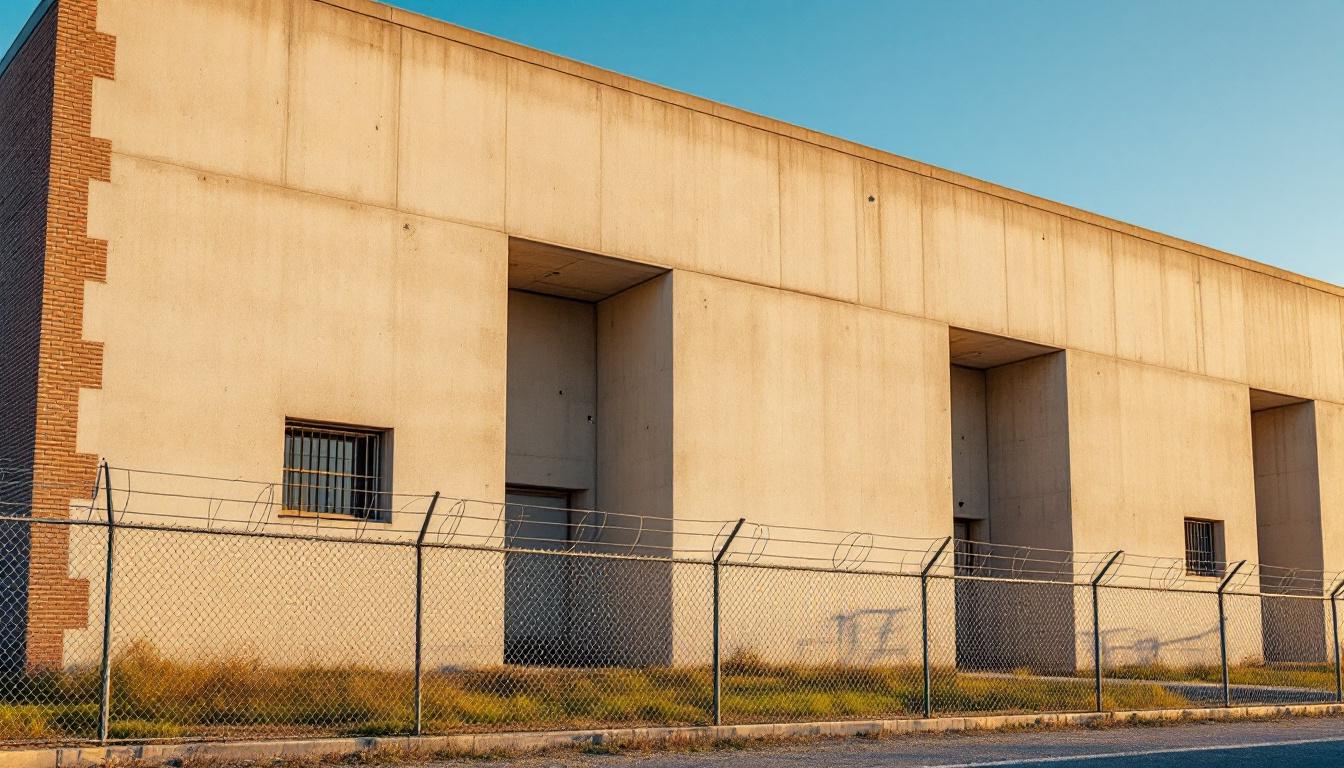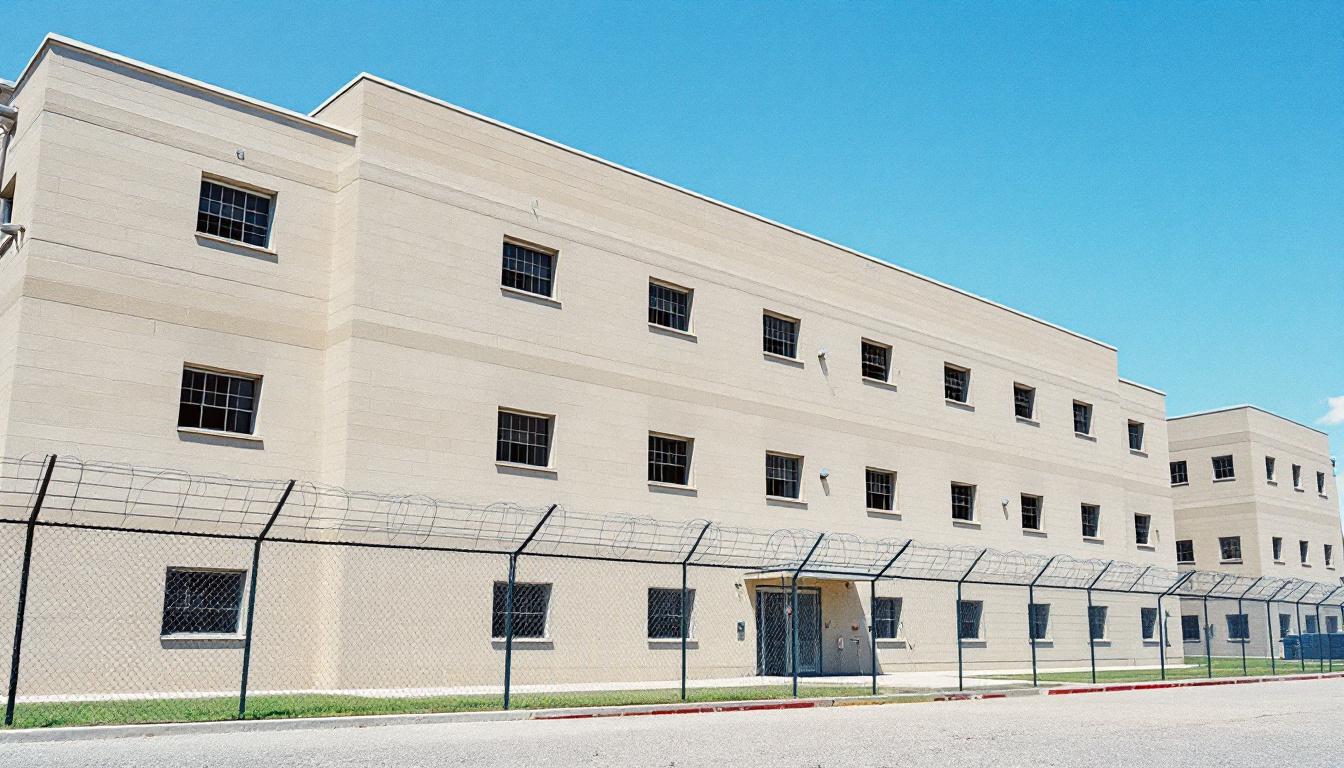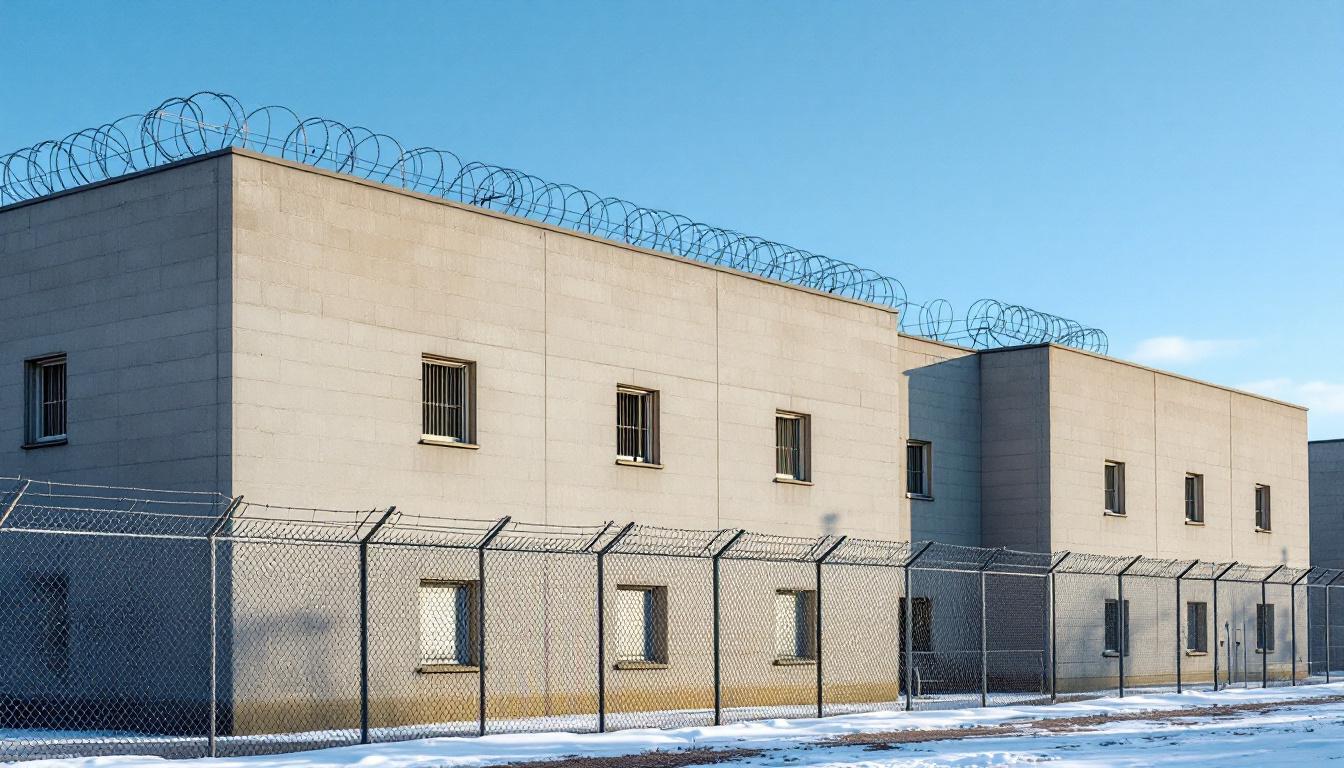
Quick Navigation
How to contact an inmate at Zavala County Sheriff’s Office
This comprehensive guide will walk you through how to connect with an inmate at Zavala County Sheriff’s Office. Follow the steps below to find an inmate and send letters and photos:
- Search for the inmate using our search tool below
- Create your account or log in to Penmate
- Write your message (up to 6,000 characters)
- Send instantly - inmates receive printed copies daily
Find an Inmate
Search for an inmate to start communicating today
Tip: You can search by first name, last name, or inmate ID number
To contact a person at Zavala County Sheriff’s Office start by searching for the person on the official facility website. Perform a search by following these steps:
- Step 1: Enter their first name and last name into the search form and click "Search"
- Step 2: Locate their inmate record
- Step 3: Write down their Inmate ID and any housing information provided
Important! Be sure to enter the person's full name. Nicknames should not be used.
How to Send Messages to Inmates

You can use your phone or computer to send emails, letters, and photos to an inmate. Messages are sent electronically to inmate tablets or kiosks at the facility. If you would like to send a message, start by searching for an inmate at Zavala County Sheriff’s Office.
Sending Photos and Postcards

A great way to send love and support to a loved one at Zavala County Sheriff’s Office is to send photos and postcards. It only takes a few minutes to send photos from your phone and it makes a huge difference. You can also mail postcards with words of support and inspiration, or design your own postcard for special moments like birthdays and holidays.
Important! Be sure not to send any explicit photos or they may not be approved by the facility. You can also use a photo printing app like Penmate to make sure your photos are printed at the correct size (4x6 or 3x5) and are mailed according to the rules and regulations of Zavala County Sheriff’s Office.
Frequently asked questions about Zavala County Sheriff’s Office
-
How long does it take to deliver a message?
If you're sending an email message your letter is usually delivered within 24-48 hours. For messages sent via mail you should expect delivery within 3-7 days. All messages will need be approved by Zavala County Sheriff’s Office.
-
How much does it cost to send a message to Zavala County Sheriff’s Office?
You can send a message free using your phone or mail a message via USPS for the price of a $0.60 stamp and envelope. You can also purchase credits or e-stamps from services starting at $1.99.
-
What services can I use to contact an inmate at Zavala County Sheriff’s Office?
Penmate
You can use Penmate to send letters and photos to an inmate from your phone. It's an easy way to stay in touch during your loved one's incarceration. Use the inmate locator to find an inmate's location and contact information, then you can send messages within a few minutes.
Securus messaging
Securus may be another option for communicating with an inmate at Zavala County Sheriff’s Office. You can create a friends and family account and purchase credits to send messages. All messages will be reviewed and must be approved by the facility.
JPay
Some county jails and state prisons may support sending messages with JPay. You must register an account with the system, find your loved one, and purchase stamps to send messages. For some locations you can also attach photos.
Smart Jail Mail
You may also check if Smart Jail Mail is available at Zavala County Sheriff’s Office. Smart Jail Mail is operated by Smart Communications and has contracted with some state and county jails. After purchasing credits, your messages and photos are sent to the facility, printed out, and then handed out to your loved one.
-
What is the mailing address of Zavala County Sheriff’s Office?
Mailing address:
Zavala County Sheriff’s Office
200 E Uvalde St
Crystal City, TX 78839
Phone: (830) 374-3615 -
What are the visiting hours at Zavala County Sheriff’s Office?
Visiting hours at Zavala County Sheriff’s Office vary by housing unit and security level. Generally, visits are scheduled on weekends and holidays, with some facilities offering weekday visits. Contact the facility directly at (830) 374-3615 or check their website for the current visiting schedule. Visits typically last 30-60 minutes and must be scheduled in advance.
-
What items are prohibited when sending mail to Zavala County Sheriff’s Office?
Prohibited items typically include: cash, personal checks, stamps, stickers, glitter, glue, tape, staples, paperclips, polaroid photos, musical or blank greeting cards, hardcover books, magazines with staples, and any items containing metal or electronics. Only send letters on plain white paper with blue or black ink. Photos must be printed on regular photo paper (no Polaroids). Always check with Zavala County Sheriff’s Office for their specific mail policies.
-
How do I send money to an inmate at Zavala County Sheriff’s Office?
You can send money to an inmate at Zavala County Sheriff’s Office through several methods: 1) Online using JPay, Access Corrections, or the facility's approved vendor, 2) Money orders mailed directly to the facility with the inmate's name and ID number, 3) Kiosks located in the facility lobby, or 4) Over the phone using a credit or debit card. Fees vary by method, typically ranging from $2.95 to $11.95 per transaction.
-
Can I schedule a video visit with an inmate at Zavala County Sheriff’s Office?
Many facilities now offer video visitation as an alternative to in-person visits. At Zavala County Sheriff’s Office, video visits may be available through services like Penmate, Securus Video Connect, GTL, or ICSolutions. Video visits typically cost $10-20 for 20-30 minutes and must be scheduled in advance. You'll need a computer or smartphone with a camera and reliable internet connection. Contact the facility for their specific video visitation policies and approved vendors.
-
What identification do I need to visit an inmate at Zavala County Sheriff’s Office?
All visitors must present valid government-issued photo identification such as a driver's license, state ID, passport, or military ID. Minors must be accompanied by a parent or legal guardian who can provide the minor's birth certificate. Some facilities require visitors to be on the inmate's approved visitation list, which may require a background check. Contact Zavala County Sheriff’s Office for specific ID requirements and visitor approval procedures.
-
How can I find out an inmate's release date?
To find an inmate's release date at Zavala County Sheriff’s Office, you can: 1) Use the online inmate search tool if available, 2) Call the facility's records department, 3) Contact the inmate's case manager or counselor, or 4) Have the inmate provide this information during a call or visit. For privacy reasons, some facilities only release this information to immediate family members.
Facility Overview
Contact Information
Zavala County Sheriff’s Office200 E Uvalde St
Crystal City, TX 78839
Phone: (830) 374-3615
Official Website
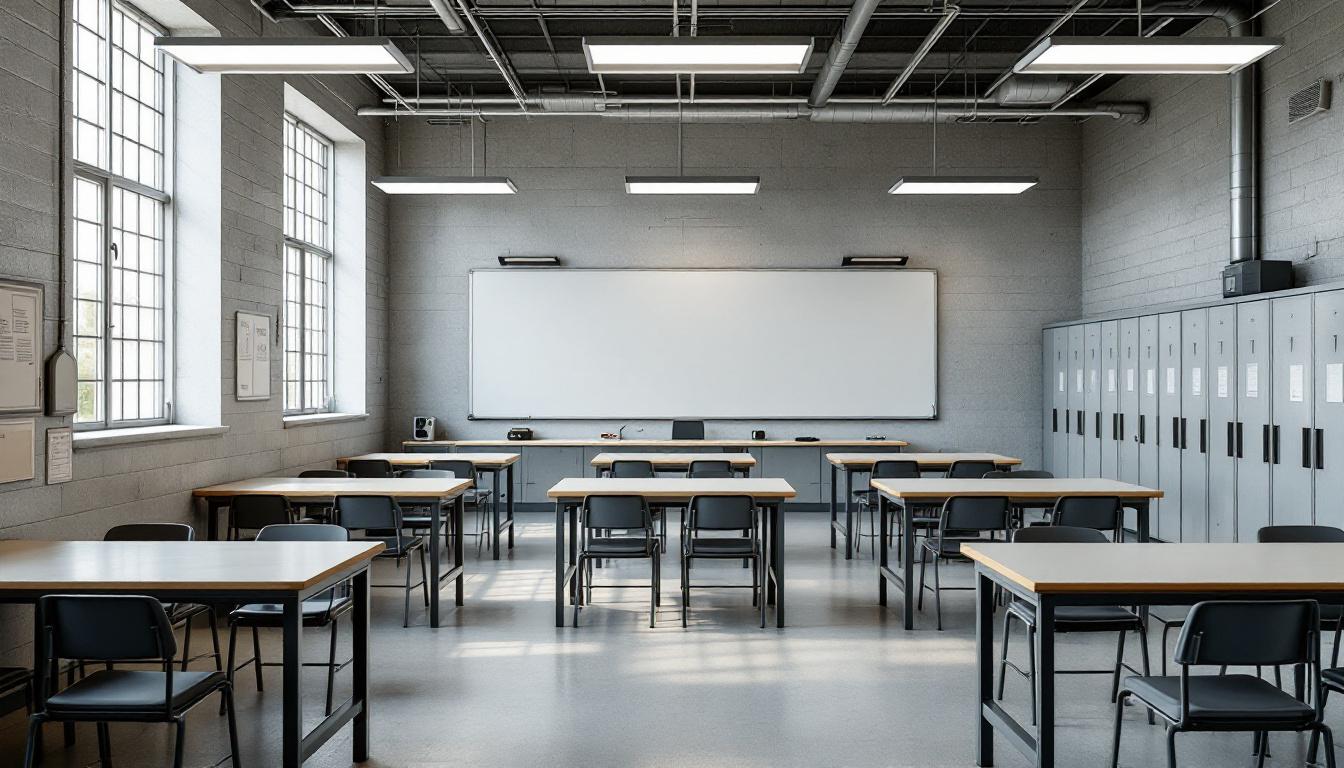
About Zavala County Sheriff’s Office
Maintaining public safety while supporting rehabilitation efforts represents the core mission of the Zavalda County Jail, a TX correctional facility strategically positioned to serve Crystal City and the surrounding south region communities. Located in this vibrant border town known for its agricultural heritage and close-knit community values, the facility operates as an integral component of the local criminal justice system, providing secure housing for individuals awaiting trial or serving shorter sentences under county jurisdiction.
The facility typically offers various programs designed to address the diverse needs of those incarcerated, which may include educational opportunities, substance abuse counseling, and vocational training initiatives that align with regional employment opportunities. Staff members generally work to maintain a structured environment that balances security requirements with rehabilitation-focused services, recognizing that many individuals will eventually return to the Crystal City area and broader south Texas communities. The jail often coordinates with local courts, legal representatives, and community organizations to facilitate the judicial process while supporting inmates’ connections to family and support networks.
As part of Texas’s county jail system, the facility generally provides essential services such as medical care, mental health support, and religious programming, while maintaining the security protocols necessary for safe operations. The jail’s role in serving Crystal City extends beyond housing, as it may offer work release programs and community service opportunities that allow eligible individuals to contribute positively to local neighborhoods while completing their sentences, fostering connections that support successful reintegration into south Texas communities.
Programs & Services
Within the structured environment of Zavalda County Jail, those incarcerated encounter a comprehensive array of developmental opportunities designed to foster personal transformation and skill acquisition. The facility’s approach emphasizes the cultivation of practical competencies alongside emotional and spiritual growth, recognizing that meaningful change often emerges through structured engagement with diverse programming. This multifaceted framework typically integrates educational advancement with therapeutic intervention, creating pathways for individuals to address underlying challenges while simultaneously building foundations for future success.
Educational and vocational offerings form a cornerstone of the facility’s developmental approach, providing those incarcerated with tangible skills that may enhance their prospects upon release. Vocational training programs often include instruction in trades and technical skills, allowing participants to develop marketable competencies within a secure learning environment. These educational initiatives typically emphasize hands-on learning experiences that bridge theoretical knowledge with practical application, ensuring that participants can translate their newly acquired skills into meaningful employment opportunities.
In addition to these foundational educational components, Zavalda County Jail may furnish an extensive range of support services and therapeutic interventions designed to address the complex needs of its population. Individual counseling sessions often provide personalized guidance and emotional support, while work programs within the facility create opportunities for those incarcerated to develop professional habits and work ethic. Faith-based initiatives typically offer spiritual guidance and community connection, complemented by specialized veteran services that address the comprehensive challenges faced by those who have served in the military. Music programs may also be available, providing creative outlets that can serve both as therapeutic tools and sources of personal enrichment, contributing to the overall rehabilitative atmosphere of the facility.
Daily Life & Visitation
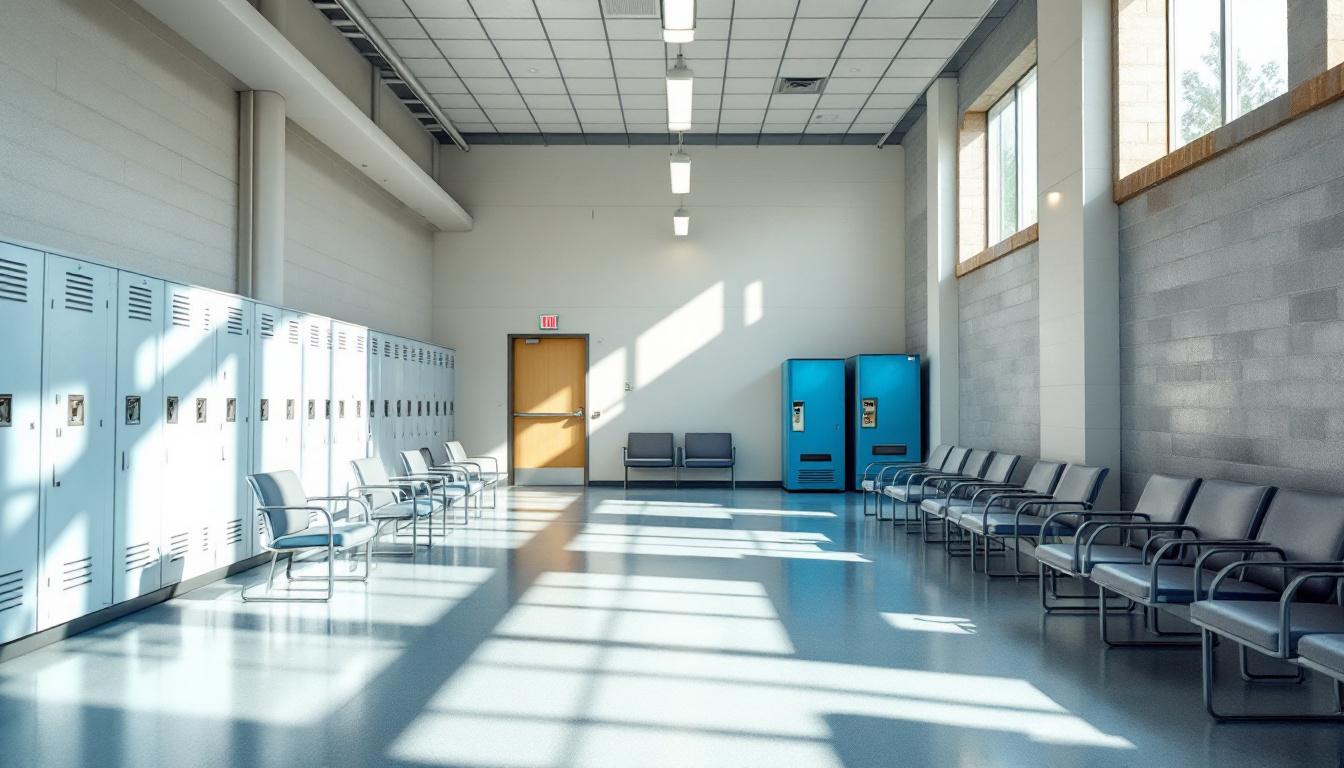
Family connections and community bonds remain central to daily life for those incarcerated at Zavalda County Jail, where structured routines consistently provide opportunities for meaningful social interactions. Today’s schedule typically begins with early morning wake-up calls, followed by headcounts and meal service that brings residents together in common areas. The facility generally maintains a predictable rhythm throughout the day, with designated periods for recreation, programming, and personal time that allow individuals to maintain relationships with fellow residents while staying connected to their support networks outside the facility walls.
Living accommodations at the facility typically consist of shared housing units where those incarcerated may develop supportive relationships with their cellmates and neighbors. These dormitory-style or multi-occupancy arrangements often foster a sense of community, as residents navigate their daily routines together and provide mutual support during challenging times. In addition to this communal living environment, the facility usually provides access to common areas where individuals can gather for meals, watch television, or participate in recreational activities that help maintain social connections and reduce the isolation that incarceration can bring.
Structured programming schedules generally furnish various opportunities for personal growth and family engagement throughout the week. The facility typically offers work assignments in areas such as kitchen services, laundry operations, and facility maintenance, which may provide those incarcerated with valuable skills while contributing to the daily operations of the institution. Despite this structured environment, visitation policies usually allow for regular contact with family members and loved ones, while phone and correspondence privileges help maintain these crucial outside connections. Recreation periods often include access to exercise equipment, outdoor time when available, and organized activities that promote positive social interaction among residents, helping to create a more supportive community atmosphere within the facility.
Ready to Connect?
Start communicating with your loved one today
Search for an Inmate
